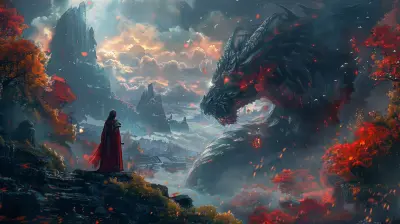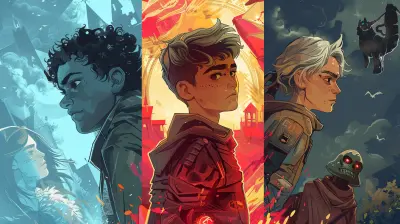Puzzle Solving in Teams: Why Some Brains Work Better Together
21 August 2025
Ever tried solving a puzzle alone and hit a wall? Maybe missing that one piece felt like staring at a locked door without the key. Now imagine adding a friend or two into the mix—suddenly, that stubborn piece clicks into place, and the picture comes alive. Magic? Not really. It’s just the power of teamwork at play. When it comes to puzzle solving, whether it’s a jigsaw, a daunting crossword, or real-life challenges, some brains genuinely work better together. But why does that happen, and what makes collaboration so effective? Let’s take a closer look.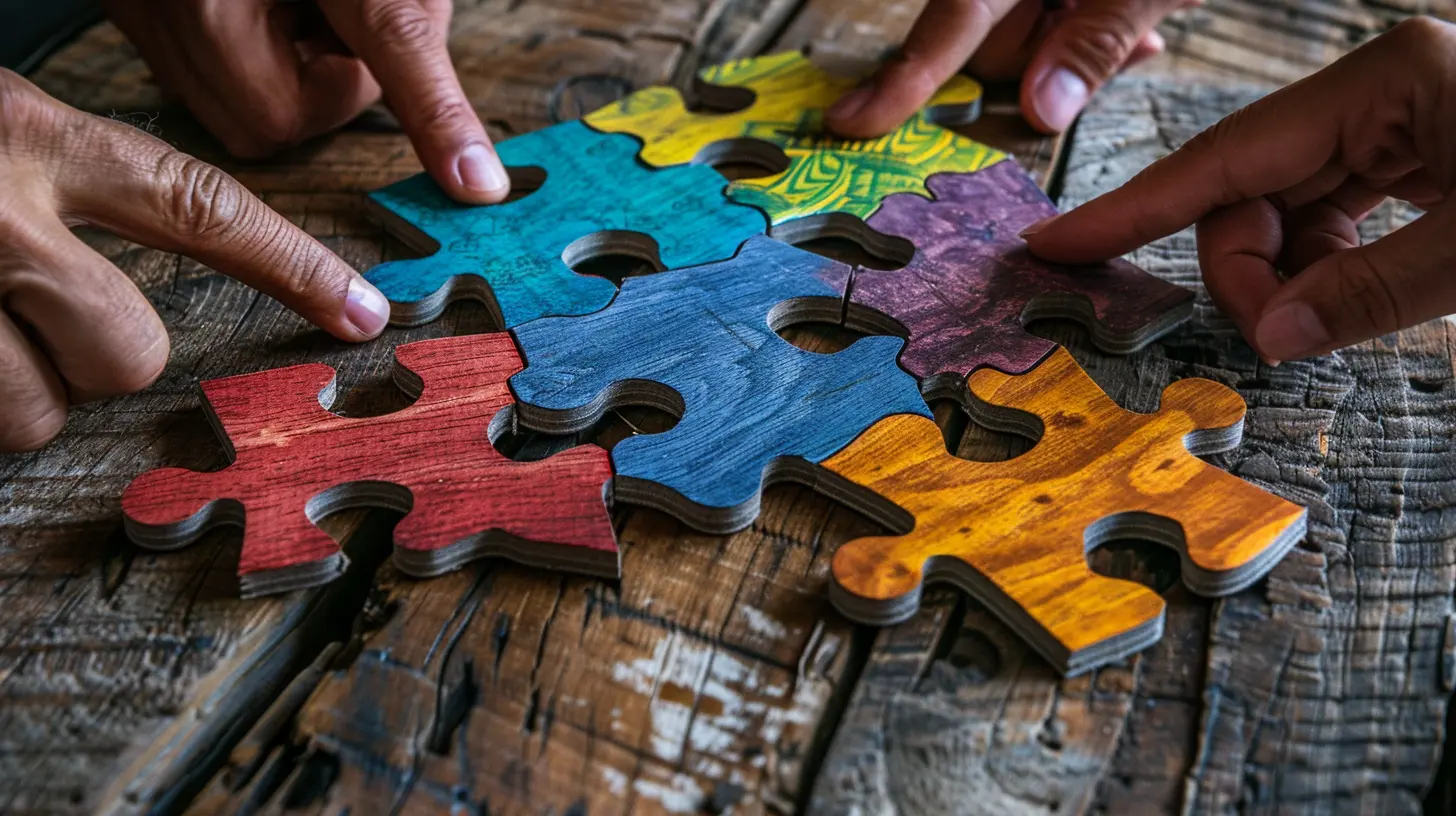
The Science Behind Collaboration: What’s Happening in Our Heads?
Humans are wired for connection—it’s baked into our DNA. When we work with others, our brains sync up in a way that boosts creativity, problem-solving, and critical thinking. It’s called neural coupling, and it’s like Wi-Fi for your brain.When two (or more) people collaborate, their brains exchange ideas faster than you can scroll through TikTok. Each person brings their unique perspective, experiences, and ways of thinking to the table. This diversity of thought creates a broader mental toolkit that’s way more effective than one brain slogging away solo.
Think of it this way: if your brain is a flashlight, a team is a floodlight, shining brighter and revealing hidden details you couldn’t see before. Working together doesn’t just make solutions more attainable—it often makes them better. Case in point: teams routinely outperform individuals when solving complex puzzles, whether it's an escape room dilemma or cracking the next big idea at work.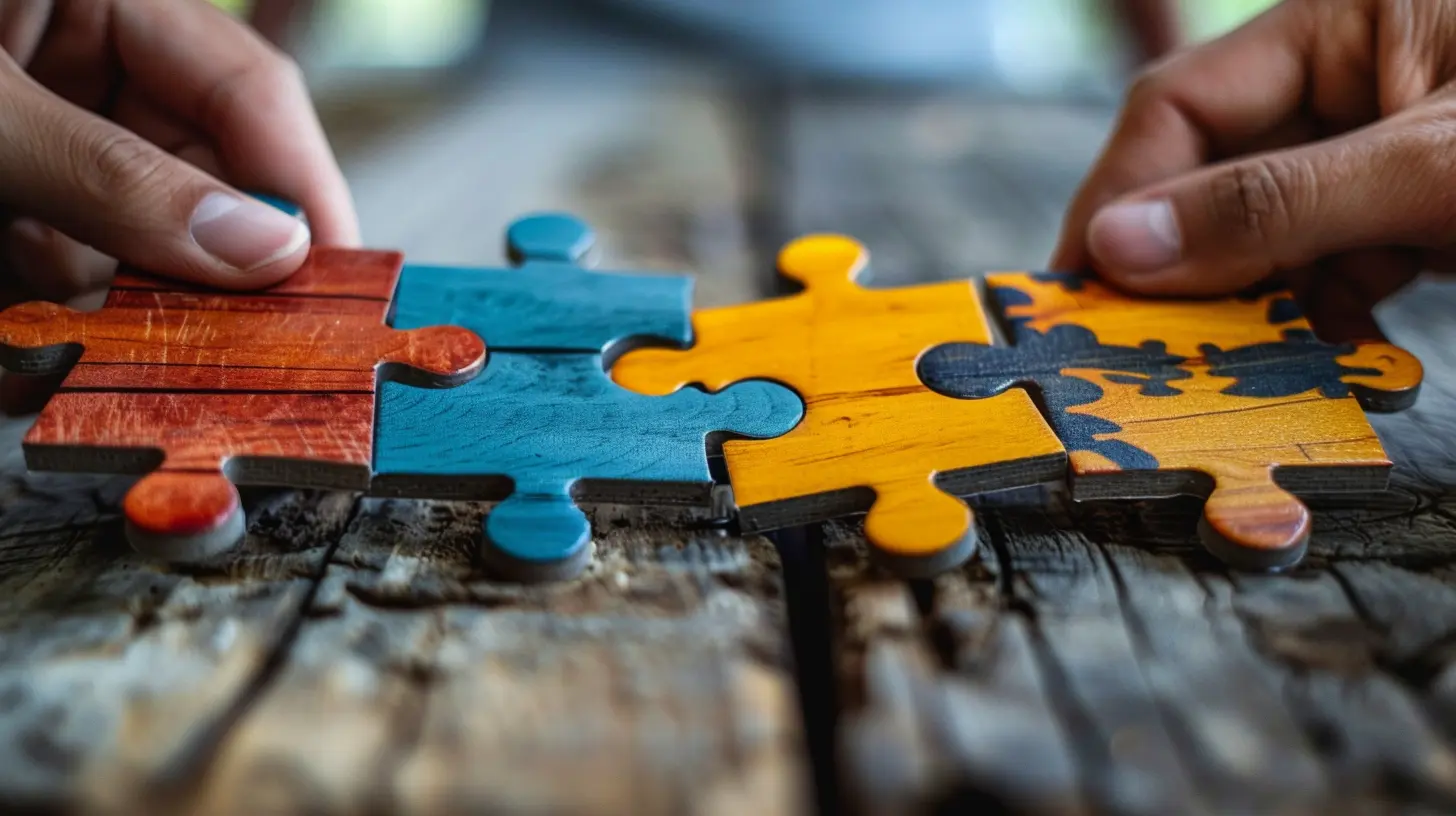
The Power of Different Perspectives
Let’s face it—no one knows everything. And that’s not a bad thing! When solving puzzles in a team, everyone brings something unique to the table. One teammate might be a numbers wizard, while another is an outside-the-box thinker. This diversity is like a Swiss Army knife—it gives you options.Take escape rooms, for example. Some people excel at spotting patterns, while others are great with logic-based riddles. Someone might even have a knack for finding clues no one else notices (a.k.a. your team's eagle eyes). Together, these strengths form a collective brain that’s far more capable than any single individual’s.
And it’s not just about personality or skills—it’s about how our brains are wired. Research has shown that teams with mixed skillsets and experiences approach challenges from multiple angles, leading to faster and more innovative solutions. Who knew your quirky nerd friend and detail-obsessed coworker would make such a killer combo?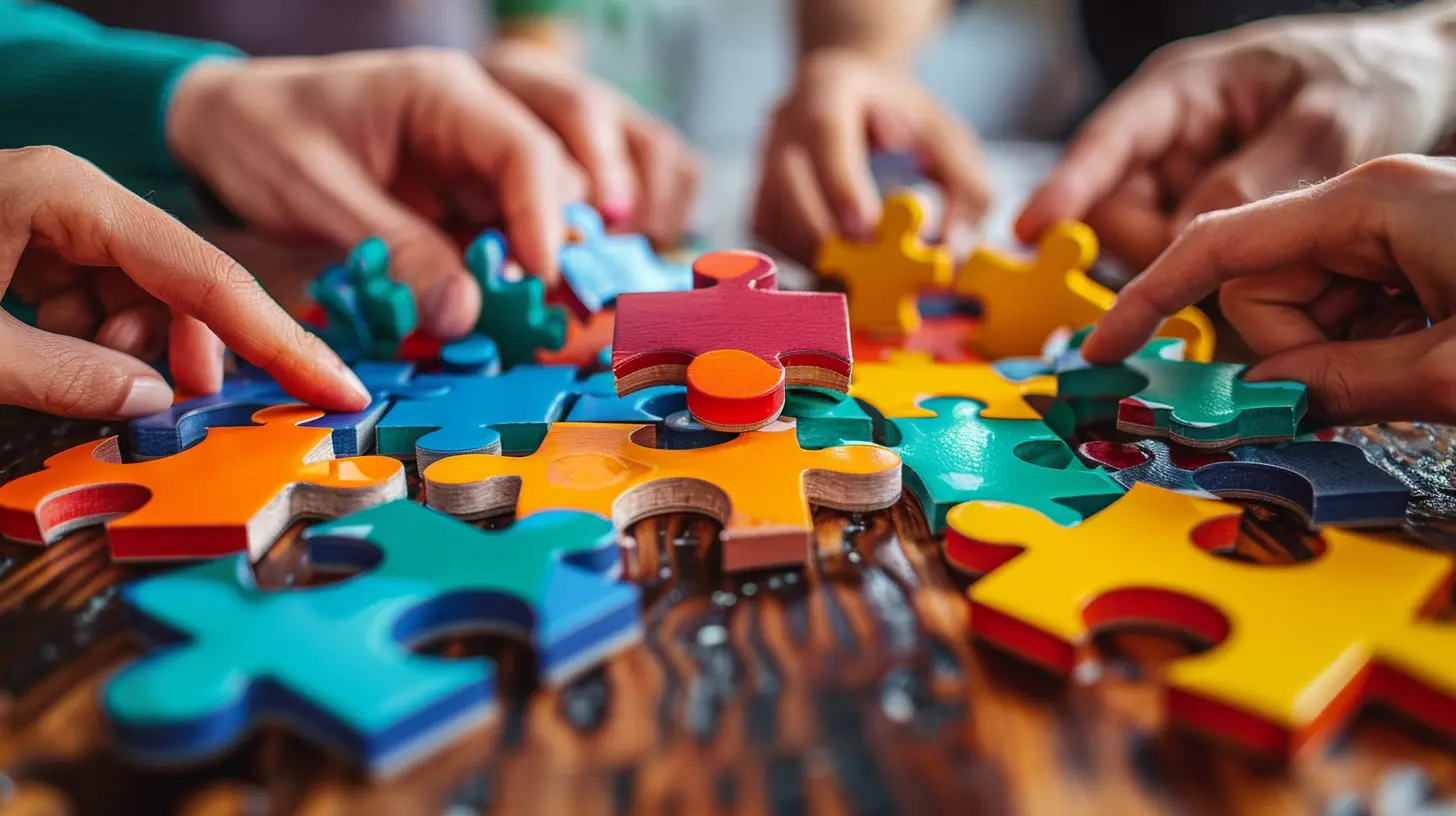
Social Dynamics: Why Do Some Teams Thrive While Others Flop?
Okay, let’s pause for a moment. You might be thinking, “Sure, teamwork sounds great, but I’ve been in group settings that were a total disaster.” And honestly? Same. Not all teams are created equal, and there’s a reason why some work like a dream while others feel like herding cats.Here’s the deal: the secret ingredient to successful team puzzle solving isn’t just brainpower—it’s communication and trust. Without those, collaboration can resemble a noisy traffic jam where everyone’s honking but no one’s moving.
Clear Communication is Key
Good communication is like GPS for a team—it guides you in the right direction and corrects mistakes quickly. Miscommunication, on the other hand? That’s like making a wrong turn and getting lost in the middle of nowhere. When solving puzzles, teams need to verbalize their ideas clearly, share their thought processes, and stay open to feedback. Saying “I think this piece goes here” is way more effective than silently trying to jam it in yourself.Trust: The Glue That Holds It All Together
Then there’s trust. If you don’t trust your teammates, forget about solving puzzles—you’ll spend all your energy second-guessing each other. Trust allows teammates to take risks, admit mistakes, and step out of their comfort zones. It’s what makes a team gel, turning individual players into a unified whole. Without it, a group is just a bunch of random people pushing in different directions.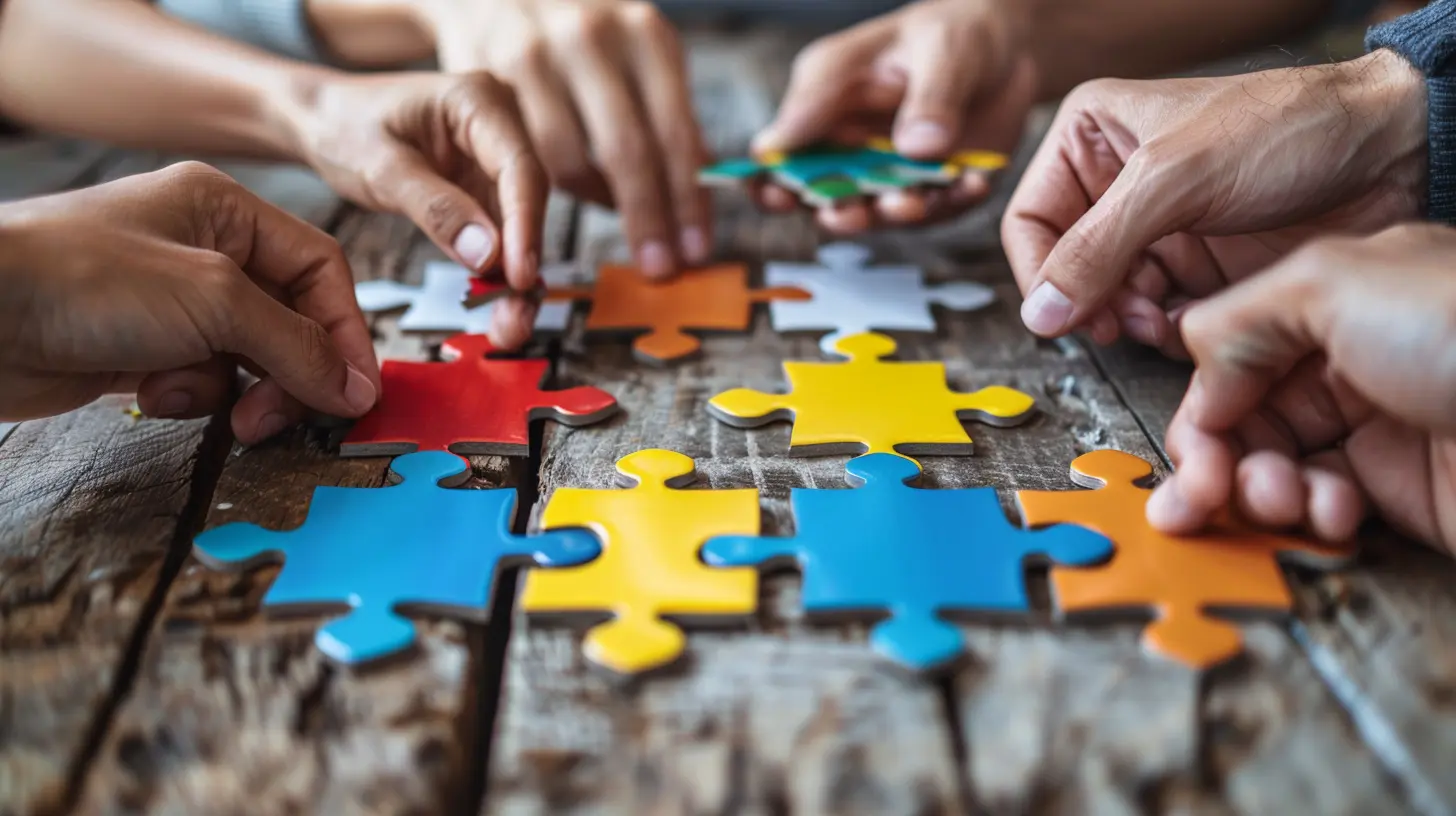
Cognitive Biases: The Sneaky Saboteurs
Even the best teams have their kryptonite: cognitive biases. These are sneaky mental shortcuts that can derail problem-solving efforts if you’re not careful. Some common culprits include:- Groupthink: When everyone blindly agrees with the loudest voice in the room to avoid conflict. Spoiler alert: this rarely leads to the best solution.
- Confirmation Bias: When your team gets stuck on a flawed idea and ignores evidence that suggests otherwise. It’s like trying to fit a square peg into a round hole—over and over again.
- Overconfidence: When a team underestimates the challenge ahead and skips crucial steps. Think of that cocky moment when you’re convinced a puzzle is “easy,” only to be staring at the same unsolved mess an hour later.
Recognizing these biases is the first step to overcoming them. Call them out when they creep in, and your team will be back on track in no time.
The Benefits of Puzzle Solving in Teams
So, why does all this matter? Beyond the obvious fun of not tackling challenges alone, solving puzzles in teams comes with some serious perks.1. Boosts Creative Thinking
When you work with others, you’re constantly exposed to new ideas and ways of thinking. It’s like a mental CrossFit workout for your brain, helping you think more creatively and see solutions you wouldn’t have spotted solo.2. Strengthens Social Bonds
Team puzzle-solving is social glue. Shared victories (and even the occasional failure) bring people closer together. Think about the last time you high-fived your friend after solving a tough puzzle. Felt pretty great, right? That camaraderie translates into stronger relationships—and not just in the game room.3. Improves Problem-Solving Skills
Practice makes perfect. The more puzzles you solve as a team, the better you’ll get at tackling challenges, both in and out of the game. It’s like flexing a problem-solving muscle that gets stronger with every session.4. Reduces Stress
Let’s be real—life is full of stressors. But when you’re immersed in a puzzle with your crew, all those worries take a backseat. The collaborative process is not only engaging but also therapeutic, giving your brain a much-needed break from everyday chaos.Why Some Brains Work Better Together
Here’s the big takeaway: collaboration works because it taps into the collective power of human connection. No single brain—no matter how brilliant—can rival the energy, creativity, and adaptability of a team that’s firing on all cylinders.When solving puzzles together, teams instinctively divide the workload, leverage each other’s strengths, and fill in each other’s gaps. It’s like assembling a human jigsaw puzzle where every person is a unique piece. Only when the pieces fit perfectly do you get the full picture.
So, why do some brains work better together? Because we’re not just wired to solve puzzles—we’re wired for each other. When we team up, our potential multiplies, and that’s a superpower worth tapping into.
Tips for Smarter Team Puzzle Solving
Feel like diving into your next team challenge? Here are some pro tips to up your collaboration game:1. Assign Roles: Let each person focus on what they’re naturally good at. Got a math whiz? Let them handle numbers. Someone great at spotting patterns? Put them on clue-finding duty.
2. Communicate Constantly: Keep ideas flowing. Even if you’re unsure, share your thoughts—you never know what might spark the “aha!” moment.
3. Take Breaks: Sometimes, you just need to step back and recharge. A rested brain is a sharper brain.
4. Celebrate Wins: Whether it’s a small breakthrough or a big finish, take time to celebrate your victories. It boosts morale and makes the whole experience more enjoyable.
Wrapping It Up
Puzzle solving in teams isn’t just about cracking codes or fitting pieces together—it’s about unlocking the true potential of collaboration. When brains work together, they create something greater than the sum of their parts. Sure, solo problem-solving has its moments, but there’s something undeniably magical about a shared “aha!” moment. It’s proof that some brains really do work better together.So, the next time you’re staring at a tricky problem, don’t go it alone. Rally your crew, put your heads together, and watch the magic unfold. Who knows? You might just surprise yourself with what you can achieve.
all images in this post were generated using AI tools
Category:
Cooperative GamesAuthor:

Luke Baker
Discussion
rate this article
2 comments
Charlie McLain
Teamwork in puzzle-solving is like mixing the perfect cocktail—just the right blend of brains can turn a challenge into a fun adventure! Whether you're a strategic mastermind or the quirky creative, when minds unite, you unlock the ultimate cheat code for success. Cheers to collaboration and cracking those conundrums!
December 31, 2025 at 5:30 AM
Amalia Watson
Sure, teamwork is great, but let’s be real—some of us just need a bigger brain to handle all these puzzles. Bring it on!
August 25, 2025 at 2:26 PM

Luke Baker
Absolutely! Teamwork can amplify our strengths, but individual skills and perspectives are crucial for tackling complex puzzles. Let's embrace both!
